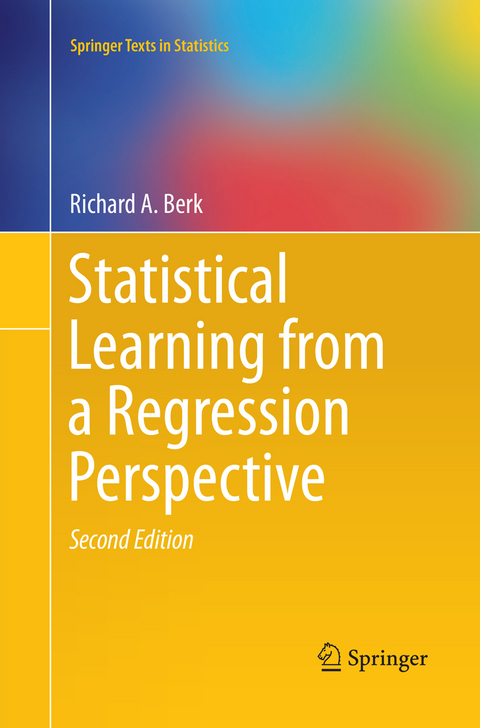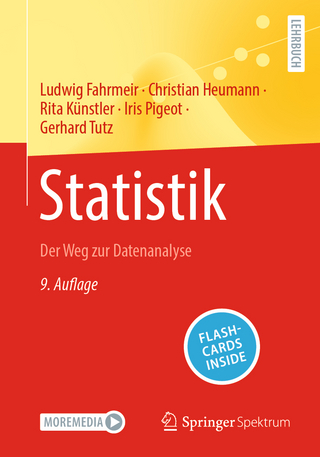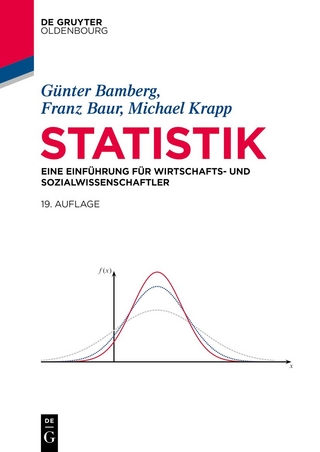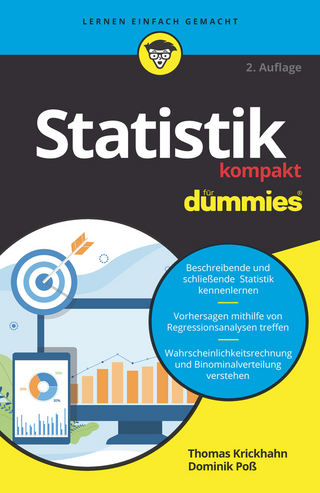
Statistical Learning from a Regression Perspective
Springer International Publishing (Verlag)
978-3-319-82969-2 (ISBN)
This textbook considers statistical learning applications when interest centers on the conditional distribution of the response variable, given a set of predictors, and when it is important to characterize how the predictors are related to the response.
This fully revised new edition includes important developments over the past 8 years. Consistent with modern data analytics, it emphasizes that a proper statistical learning data analysis derives from sound data collection, intelligent data management, appropriate statistical procedures, and an accessible interpretation of results. As in the first edition, a unifying theme is supervised learning that can be treated as a form of regression analysis. Key concepts and procedures are illustrated with real applications, especially those with practical implications.
The material is written for upper undergraduate level and graduate students in the social and life sciences and for researchers who want to apply statistical learning procedures to scientific and policy problems. The author uses this book in a course on modern regression for the social, behavioral, and biological sciences. All of the analyses included are done in R with code routinely provided.
Richard Berk is Distinguished Professor of Statistics Emeritus from the Department of Statistics at UCLA and currently a Professor at the University of Pennsylvania in the Department of Statistics and in the Department of Criminology. He is an elected fellow of the American Statistical Association and the American Association for the Advancement of Science and has served in a professional capacity with a number of organizations such as the Committee on Applied and Theoretical Statistics for the National Research Council and the Board of Directors of the Social Science Research Council. His research has ranged across a variety of applications in the social and natural sciences.
Statistical Learning as a Regression Problem.- Splines, Smoothers, and Kernels.- Classification and Regression Trees (CART).- Bagging.- Random Forests.- Boosting.- Support Vector Machines.- Some Other Procedures Briefly.- Broader Implications and a Bit of Craft Lore.
"This book is an outstanding example of synthesizing theoretical knowledge with applications, mathematical notations with R code, and statistics with machine learning. It has relevant exercise sets and will be an excellent textbook for a broad range of quantitatively oriented students, specifically, for those specializing in data science or taking a course on statistical learning." (Vyacheslav Lyubchich, Technometrics, Vol. 59 (4), November, 2017)
"The book focuses on supervised learning techniques that can be viewed as a form of regression ... . There are instructive problems at the end ... and examples with code in R to illustrate throughout. ... This is a thought provoking book worthy of serious attention by machine learning practitioners." (Peter Rabinovitch, MAA Reviews, July, 2017)
"The intended audience includes advanced undergraduate and graduate students biostatistics in the fields of social science and life science, as well as researchers who want to apply statistical learning procedures to scientific and policy problems. ... This is an excellent overview of statistical learning applications. It is strongly recommended to advanced researchers and statisticians particularly interested in the social and behavioral aspects of data analysis." (Puja Sitwala, Doody's Book Reviews, January, 2017)| Erscheinungsdatum | 05.03.2022 |
|---|---|
| Reihe/Serie | Springer Texts in Statistics |
| Zusatzinfo | XXV, 347 p. 120 illus., 91 illus. in color. |
| Verlagsort | Cham |
| Sprache | englisch |
| Maße | 155 x 235 mm |
| Gewicht | 575 g |
| Themenwelt | Mathematik / Informatik ► Mathematik ► Statistik |
| Mathematik / Informatik ► Mathematik ► Wahrscheinlichkeit / Kombinatorik | |
| Schlagworte | classification • random forests • Regression Analysis • Statistical Learning • Statistics for Social Sciences • Support Vector Machines |
| ISBN-10 | 3-319-82969-6 / 3319829696 |
| ISBN-13 | 978-3-319-82969-2 / 9783319829692 |
| Zustand | Neuware |
| Haben Sie eine Frage zum Produkt? |
aus dem Bereich


